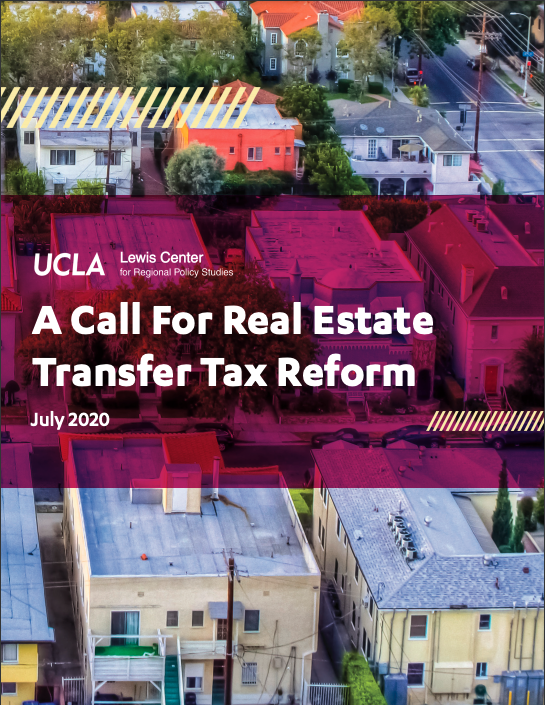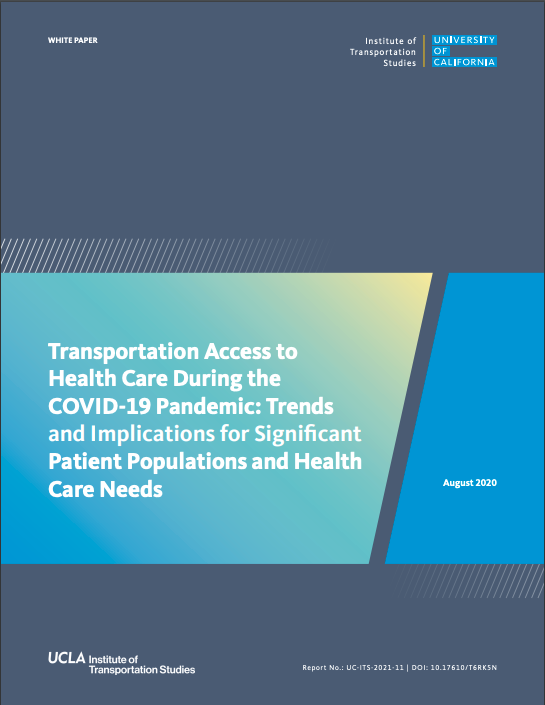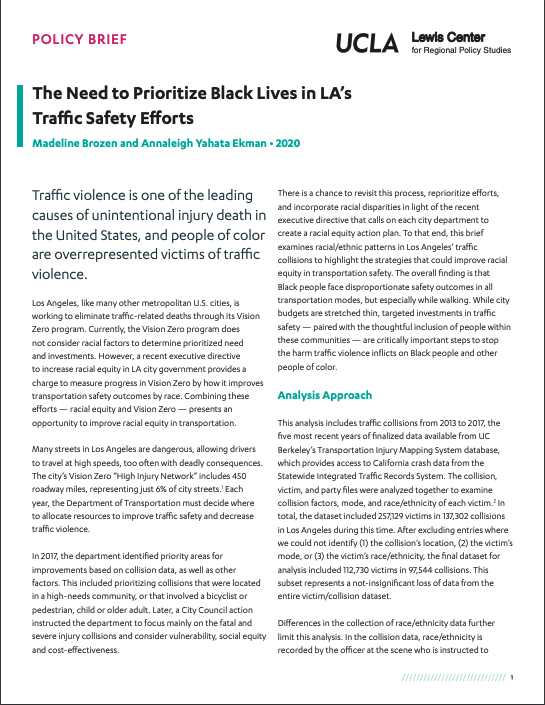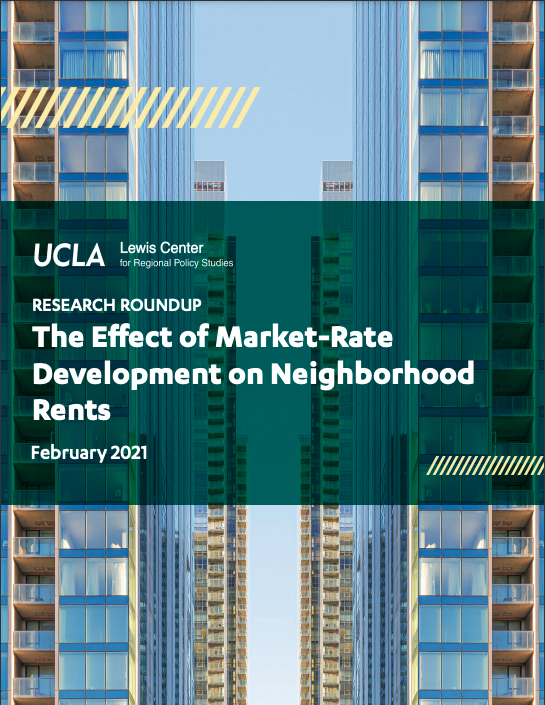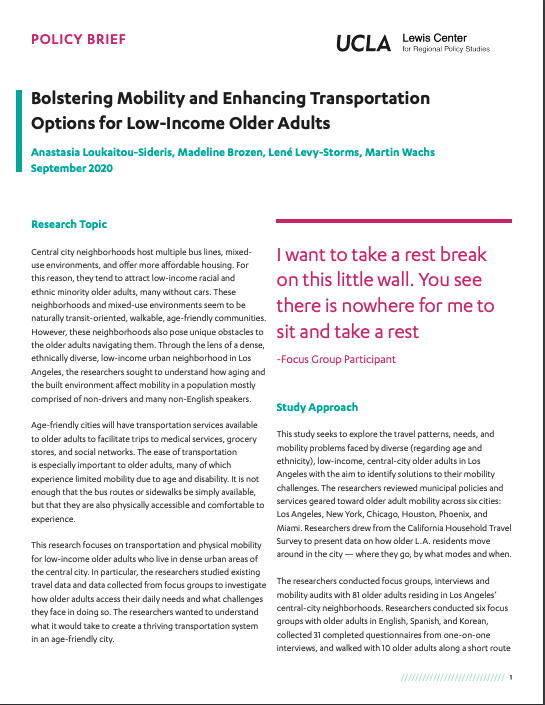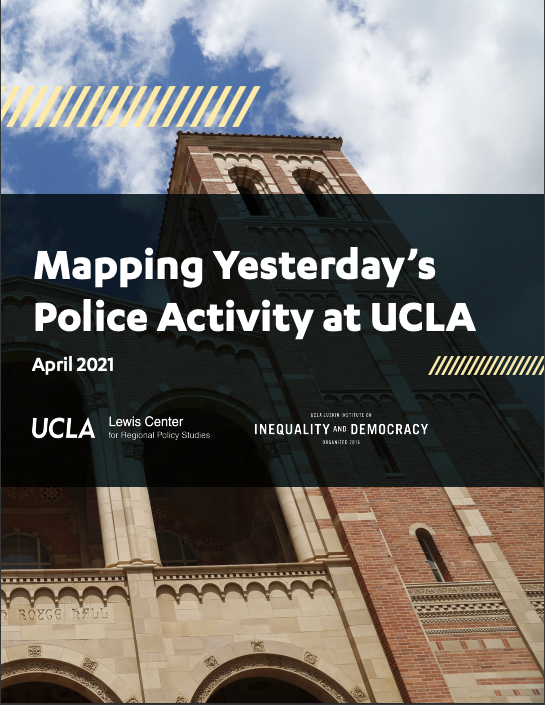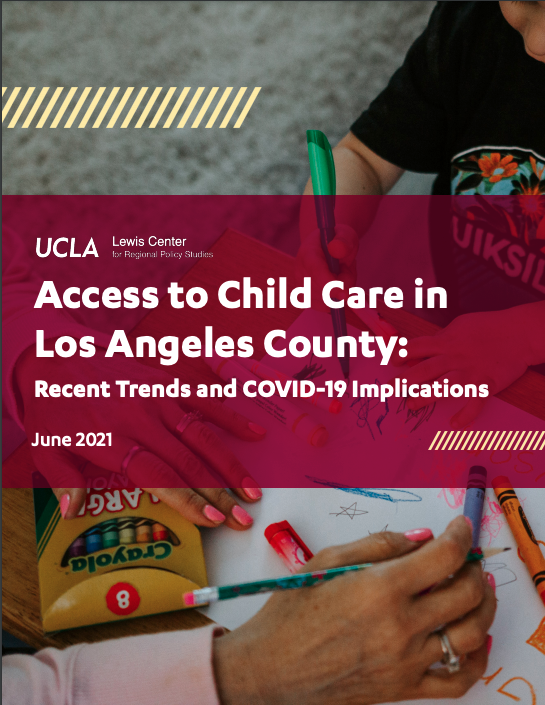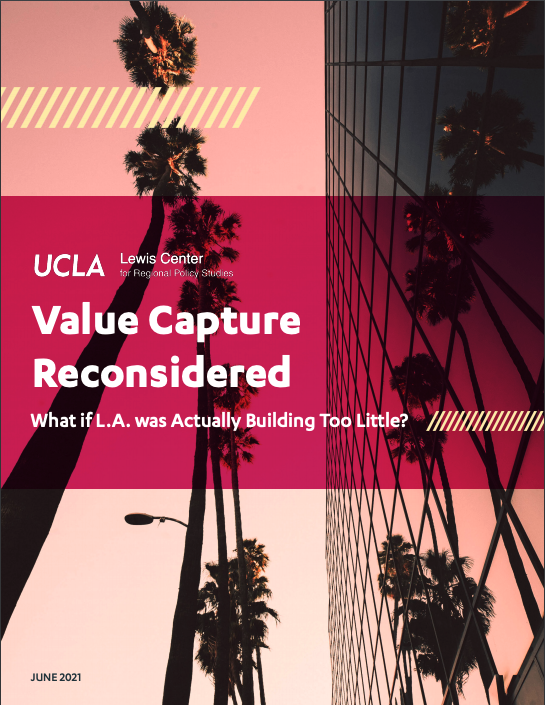| Director’s Message | By the Numbers | Responding to COVID-19 Issues | Access to Opportunities Initiative | Events & Communications | Research & Education | Select Research |
Director’s Message
By the Numbers
Responding to COVID-19 Issues
Access to Opportunities Initiative
Events & Communications
Research & Education
Select Research
Director’s Message
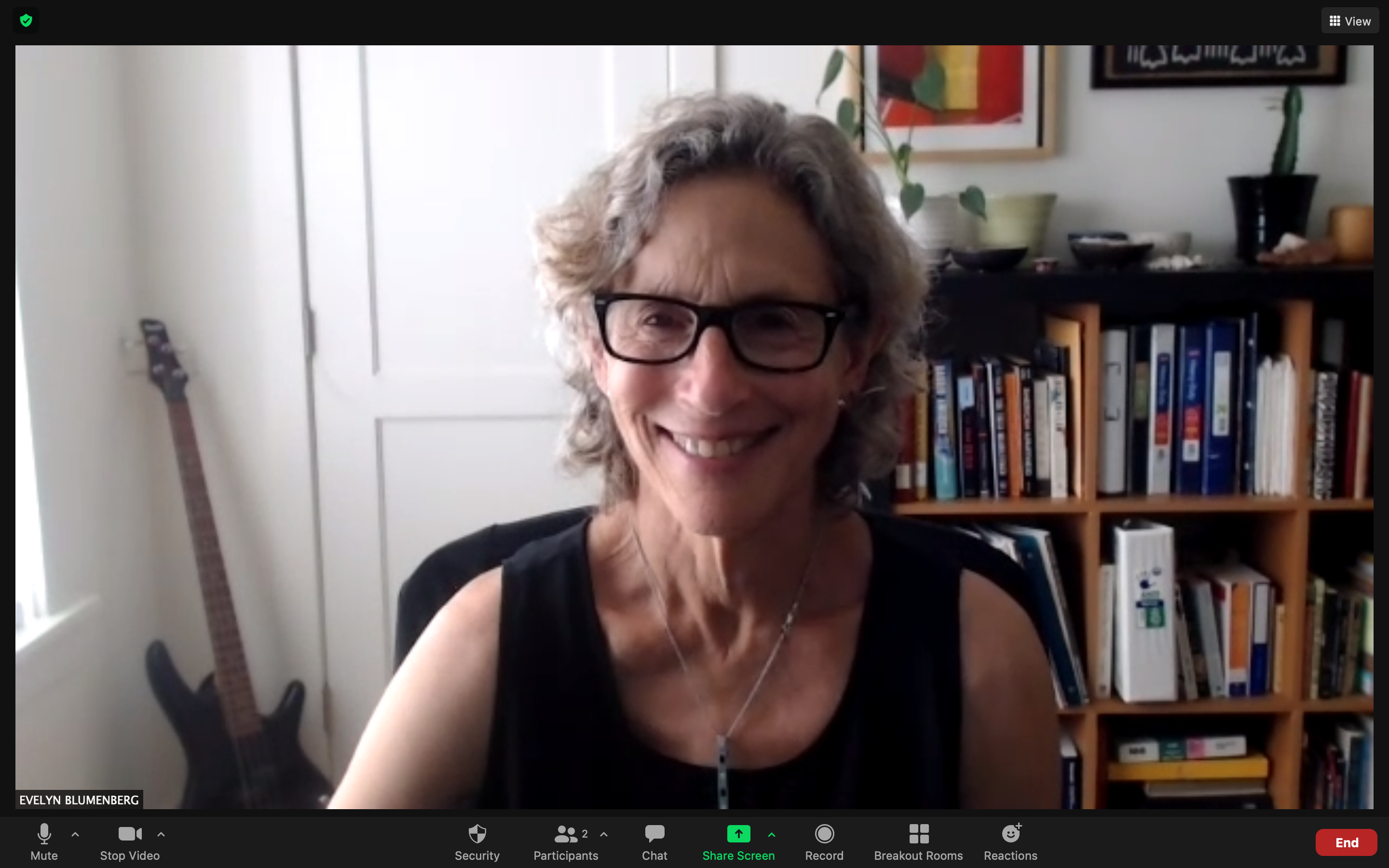
This past year was a difficult one. The COVID-19 pandemic wreaked untold hardship on families and communities in the region. The negative effects were magnified in communities of color, underscoring as always the importance of racial equity in our efforts.
Remote work did not slow us down. Despite these challenging circumstances, we continued the long tradition of Lewis Center scholars leading and responding to critical issues and events with timely scholarship.
We have been actively engaged in expanding our reach. These efforts included the launch of our Access to Opportunities Initiative, research on child care as essential infrastructure, a new podcast to more widely disseminate housing research, and a growing number of events. We look forward to engaging with you as we transition from our homes back to in-person activities at UCLA and throughout the L.A. region.
Evelyn Blumenberg, Director
By the Numbers
In 2020-21, the UCLA Lewis Center continued to advance research and knowledge on how people live, move and work in the Los Angeles region.

New reports and briefs
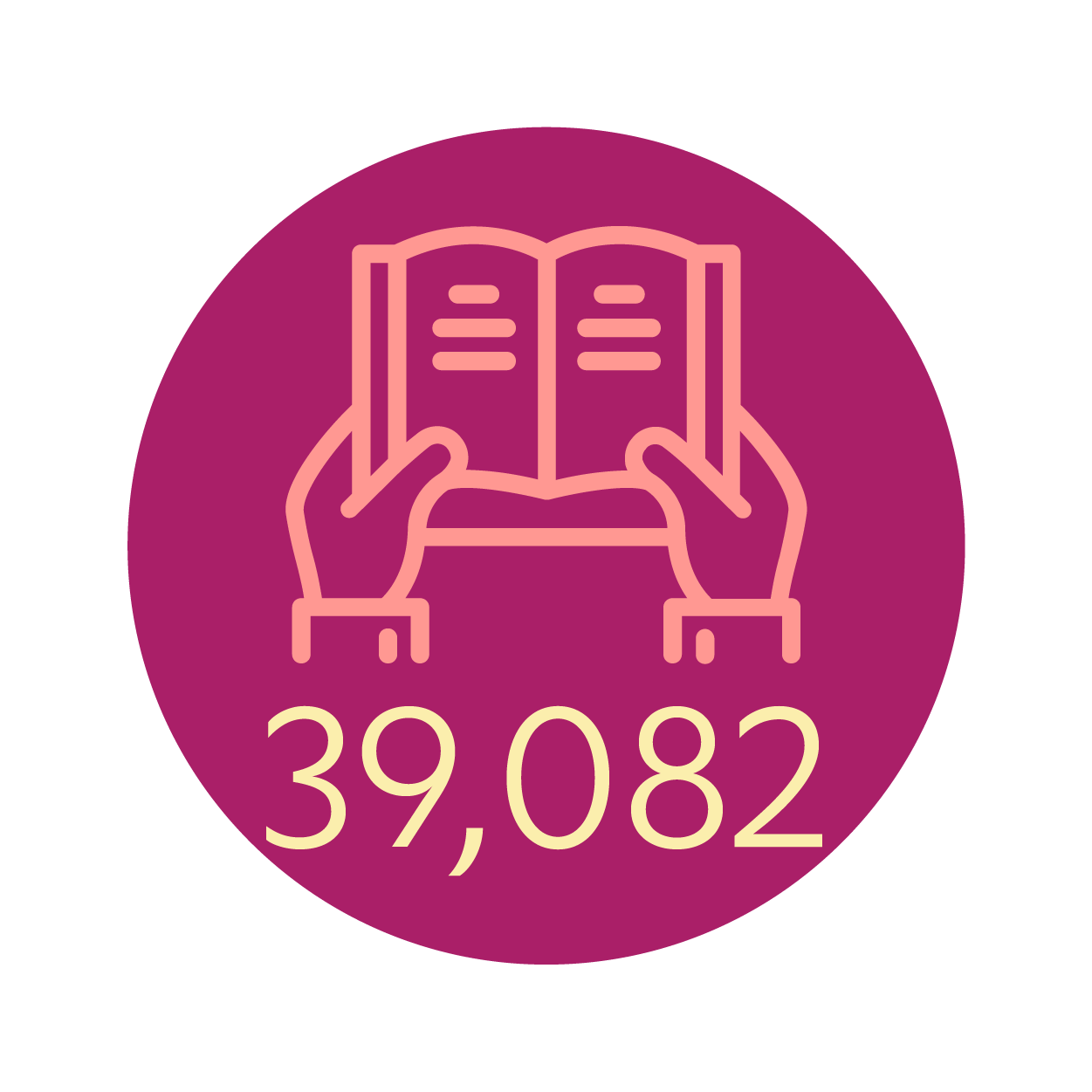
Publication views

Students supported

Funding to students

Community events

Media hits
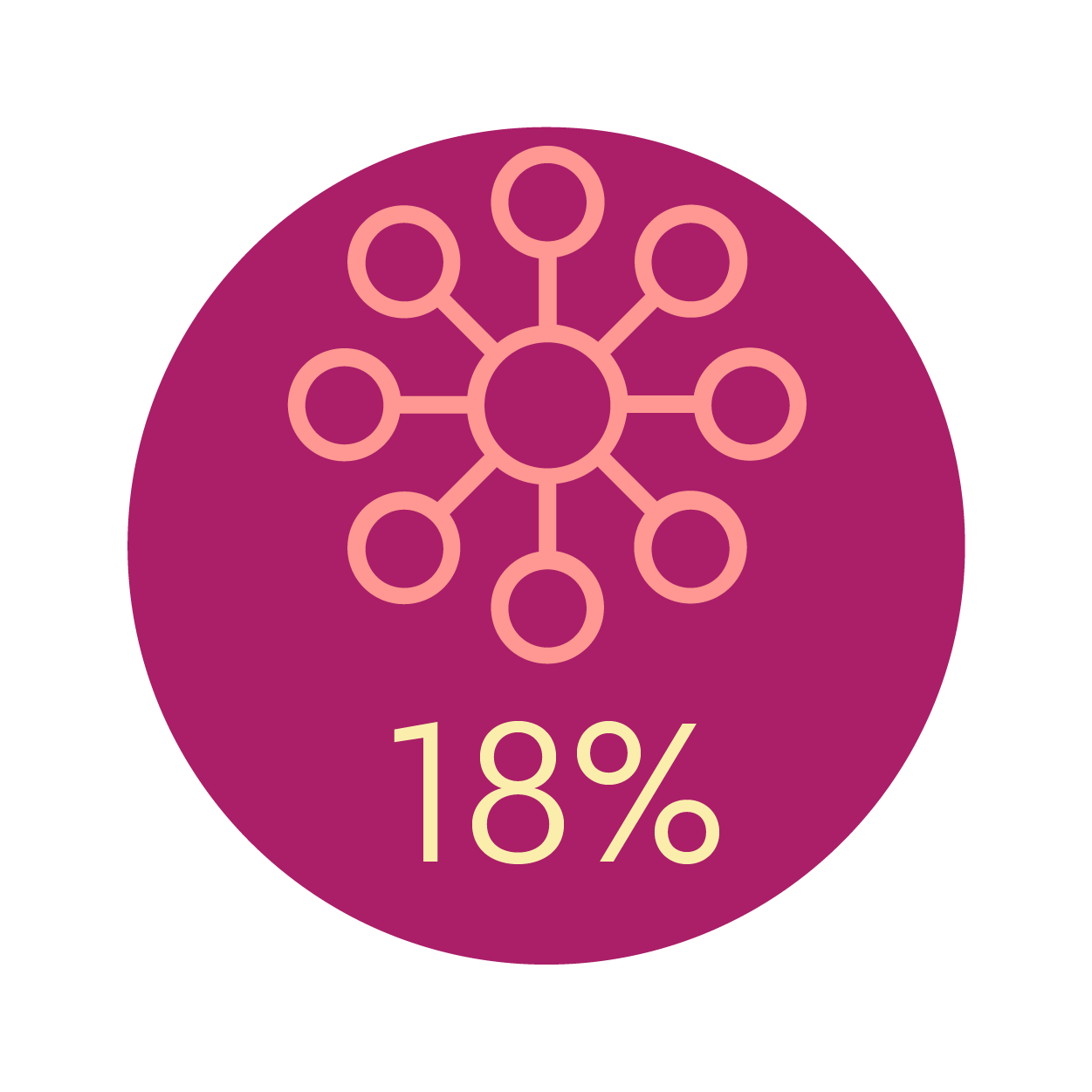
Growth in reach
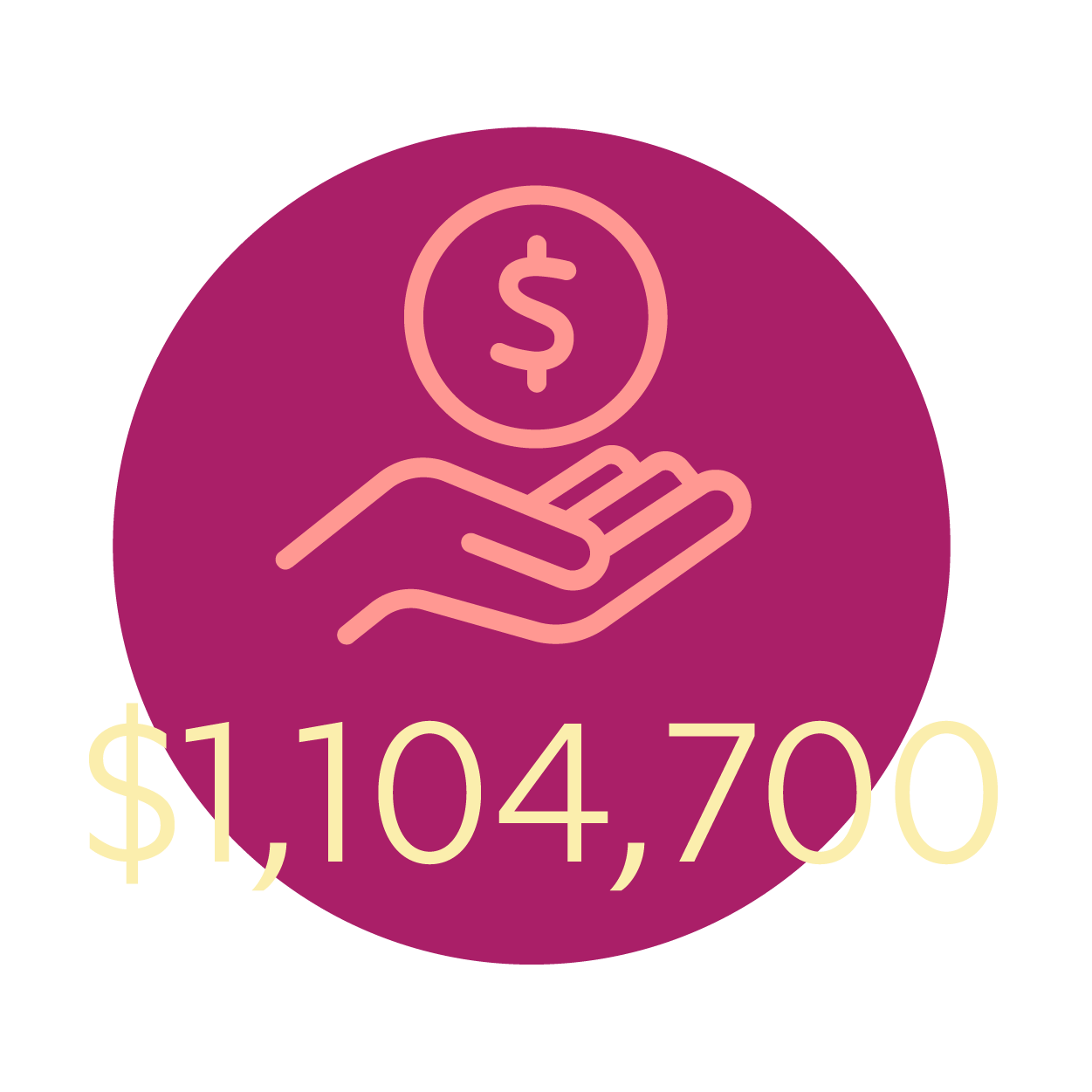
Additional support
Responding to COVID-19 Issues
The unprecedented COVID-19 crisis affected nearly every sector of life and it called for timely and accurate information to inform public policy and programs. The Lewis Center conducted research and work on the pandemic’s impact on mobility, access, food and housing security and what can be done in response.

Advocating
COVID-19 Responses Shouldn’t Revolve Around Vehicles
In a Los Angeles Times op-ed, we argued that, even in car-centric L.A., not only were too many testing sites drive-thrus but also that too few walk-up sites were accessible to carless Angelenos. Read more >>
Explaining
COVID-19’s Transportation Impacts Widened Already Existing Health Disparities
During the pandemic, trips to the doctor’s office, like all travel, became more complicated. Disruptions to health care have been widespread, but particularly so for low-income people and people of color who already have higher rates of chronic health conditions and transportation disadvantage. Read more >>
Warning
Offering Critical Services Only by Car Creates Inequities
Beyond testing and vaccination sites, many aspects of day-to-day life turned to drive-ins and drive-thrus during the pandemic. Car ownership shouldn’t be a prerequisite for full participation in U.S. society. Read more >>
Illustrating
Food Insufficiency Spiked
In a study meant to guide economic relief programs, researchers found that in the first three months of the pandemic, more than 3 million people in the Southland and Bay Area reported not having enough food to eat, a 22% increase from the pre-pandemic rate. Read more >>
Access to Opportunities Initiative
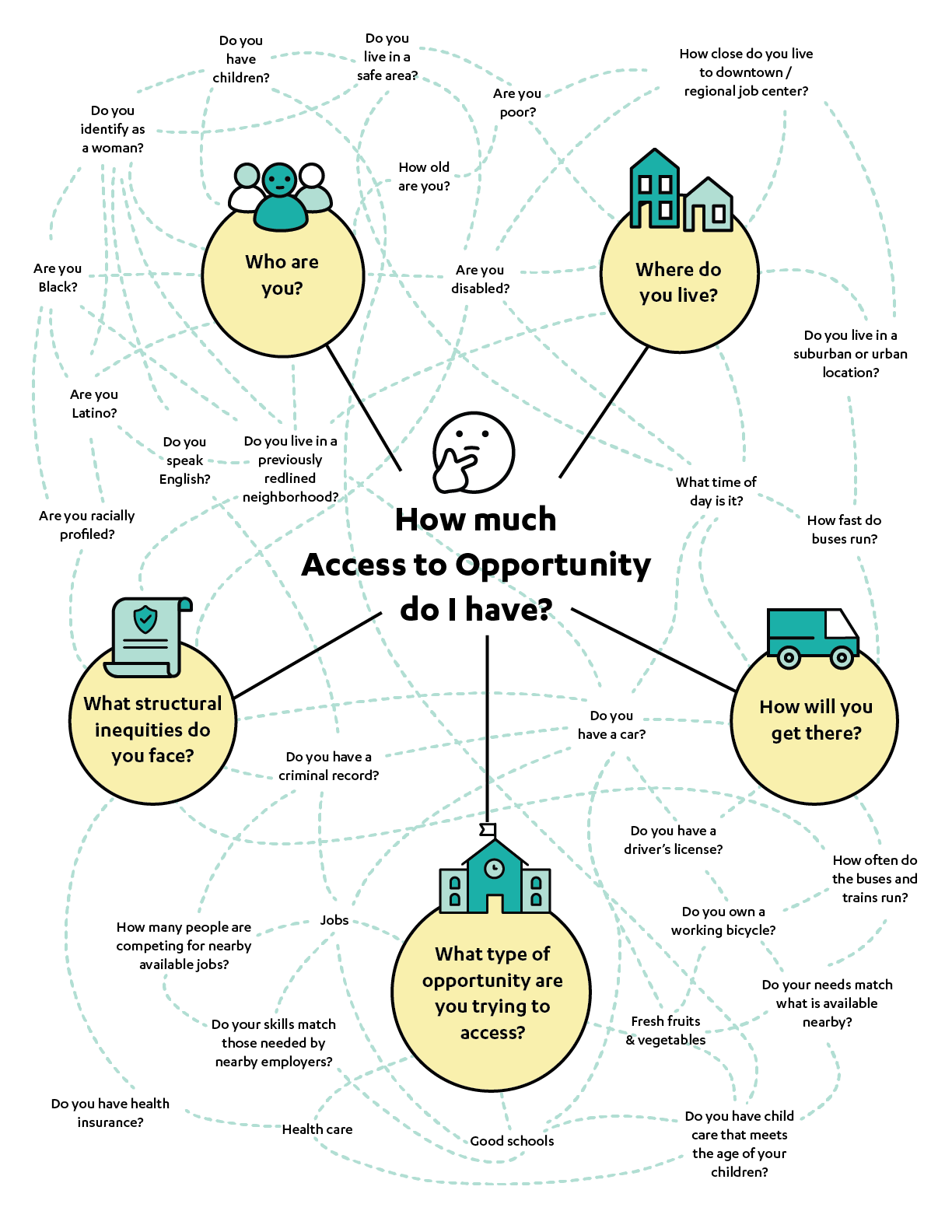
Transportation allows people to reach essential destinations. It enables workers to get to jobs, students to school, and patients to see doctors. But for those who lack transportation, whether it be because they don’t have their own vehicles or because public transit doesn’t get them where they need to go in a timely manner, these opportunities can cease to exist.
This year, we launched the Access to Opportunities Initiative — an interdisciplinary research project that focuses on how transportation connects people to economic and social opportunities.
In partnership with the UCLA Institute of Transportation Studies, this multidisciplinary program leverages the expertise from diverse UCLA departments, including urban planning, health policy, Chicana/o studies, medicine, public policy, public health, and social welfare, to delve into the specific role that transportation plays.
Events & Communications
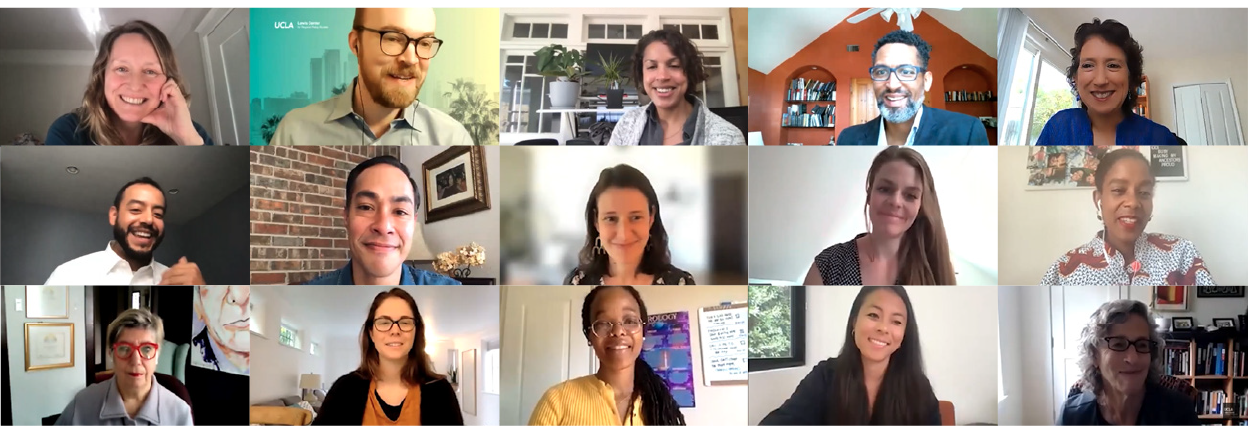
The Future of Federal Housing
Julián Castro, former U.S. Secretary of Housing and Urban Development, joined us to discuss the urgency of federal housing policy, especially with an eviction crisis looming due to economic fallout from the coronavirus pandemic. Learn more >>
Cash Works — What’s Next?
Experts of cash assistance pilot programs across the U.S. and Canada convened to discuss how guaranteed income has helped their local communities — and its potential application in the L.A. region. Learn more >>
Rental Registries
At the state level, Assembly member Buffy Wichs said that California lacks an important tool to protect tenants — data on rental units and its most vulnerable renters. Wicks has twice proposed statewide rental registries to inform policy decisions. Learn more >>
Child Care in L.A.
Child care is essential infrastructure and a shrinking of the sector over the past year has left many working parents with limited options. How will the lack of care access impact L.A.’s economic recovery, including housing affordability and transportation access? Learn more >>
New UCLA Housing Voice Podcast
Housing research is fast-moving with important implications for policy and people. But research findings don’t often get shared beyond academia. Our new podcast breaks down new research and how it can be applied in the real world.
Research & Education
Research Spotlight
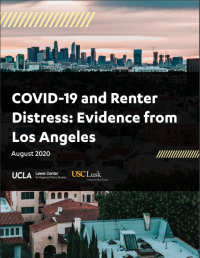
1 in 5 L.A. Tenants Struggled to Pay Rent During the Pandemic
This survey and report documents the hardships faced by tenants during the COVID-19 pandemic, and it traces those hardships overwhelmingly to lost work and wages as a result of the economic shutdown. The study also found that renters were suffering disproportionately from anxiety, depression and food scarcity, and were relying much more than in the past on unconventional methods to cover their expenses.
Research in Action
The City of Culver City passed a ballot measure in November 2020 to increase the one-time tax on property sales, reflecting Lewis Center research that found reforms to the real estate transfer tax are an effective and equitable solution to immediate budget needs, while also supporting important long-term priorities including affordable housing and tenant assistance.
The Los Angeles City Council introduced a motion to address street harassment, particularly on public transit systems, that drew heavily from the expertise of UCLA professor Anastasia Loukaitou-Sideris, whose recent work investigated the scope of sexual harassment in transit journeys and recommendations to address it.
Bruin Spotlight
Rayne Laborde, M.Arch I ’20, MURP ’21
Rayne analyzed park dwelling and park-based encampments in Los Angeles and how parks can adapt to support all members of the public, especially in the midst of a housing crisis. Learn more >>
Up Next: Rayne will stay at UCLA as associate director of cityLAB and work on housing innovation, continuums of accommodation, and access to public space.

Stay Informed
Join our mailing list for the latest research, news and events from the Lewis Center.


